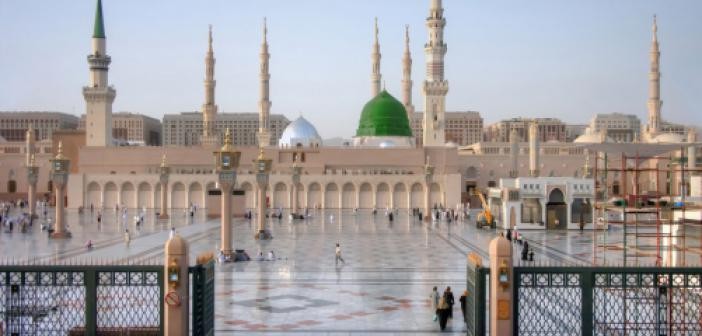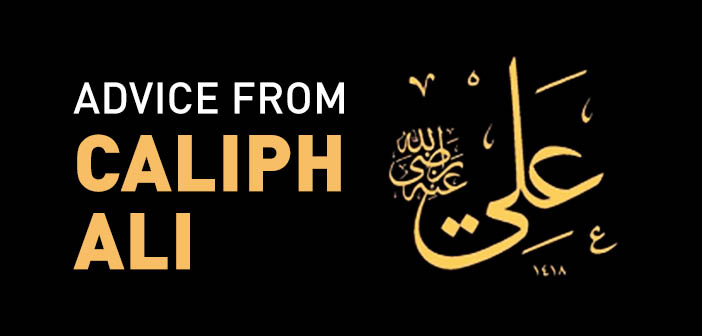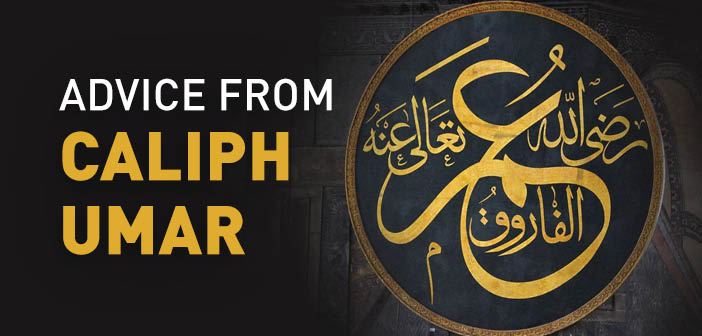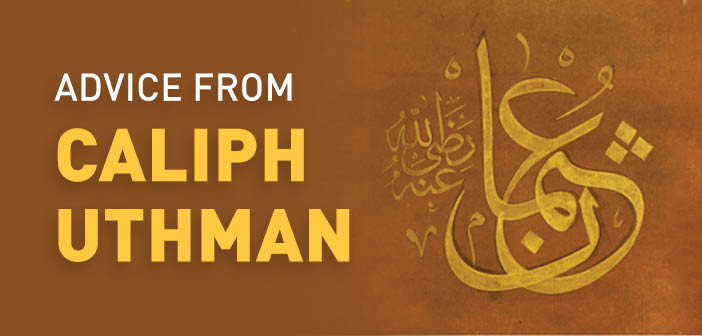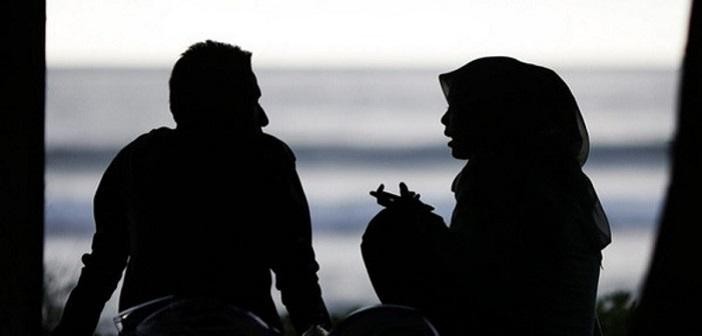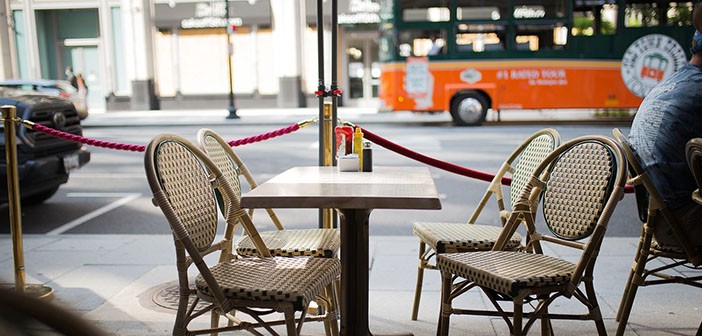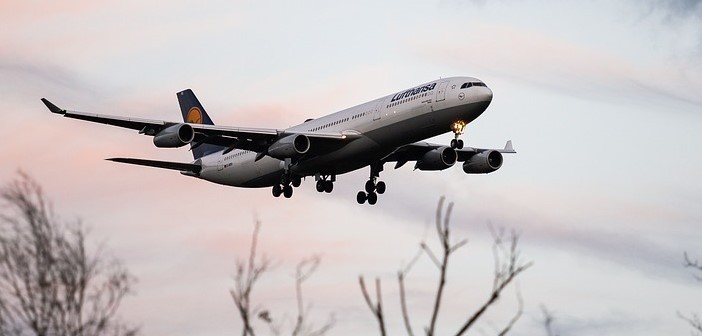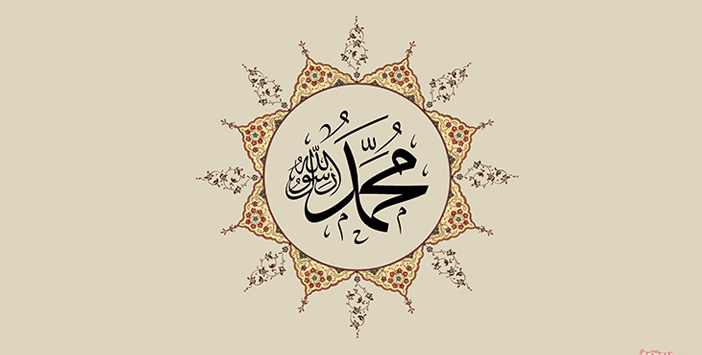
BİRTH AND CHİLDHOOD OF PROPHET MUHAMMAD
What are the events heralding the birth of the prophet Muhammad (PBUH)? How was the birth and childhood of prophet Muhammad (PBUH)? You can reach everything of the birth and childhood of profhet Muhammad (PBUH)...
EVENTS HERALDİNG THE BİRTH OF THE PROPHET
Divine signs indicating the great birth started to become manifest well before the delivery of the Blessed Prophet. Every inch of the universe was yearning for the embodiment of very cause behind their creation.
The pledges taken by the Almighty from previous Prophets that they will recognize Muhammad -upon him blessings and peace- as a Prophet and help him should he appear in their lifetimes could be considered as the greatest sign attesting to his advent. The following verse confirms that:
“Behold! Allah took the covenant of the Prophets, saying: ‘I give you a Book and Wisdom; then comes to you a messenger, confirming what is with you; do ye believe in him and render him help.’ Allah said: ‘Do you agree, and take this My Covenant as binding on you?’ They said: ‘We agree.’ He said: ‘Then bear witness, and I am with you among the witnesses.’” (Âl İmrân, 81)
Raising their hands to the heavens, Prophets Ibrahim and Ismail –upon them peace- also prayed for the arrival of the Blessed Prophet -upon him blessings and peace- after completing the building of the Kaabah.
“Our Lord! Raise up a Messenger from among them who shall recite to them Your communications and teach them the Book and the wisdom, and purify them. Surely You are the Mighty, the Wise!” (al-Baqara, 129)
Similarly, while informing the Israelites of his Prophethood, Prophet Isa –upon him peace- also gives the glad tidings of the coming of the final Prophet.
“And remember, Isa, the son of Maryam, said: "O Children of Israel! I am the Messenger of Allah (sent) to you, confirming the Law (which came) before me, and giving Glad Tidings of a Messenger to come after me, whose name shall be Ahmad…” (es-Saff, 6)
Wile still pregnant, Aminah saw a dream in which she heard:
“You are pregnant, Aminah, with the master of the Ummah. When you give birth to him pray to Allah and say, ‘I seek refuge with Allah, the One, from the evil of the envious when he envies’ and give him the name ‘Muhammad’.[1]
In memory of these, the Messenger of Allah -upon him blessings and peace- has stated:
“I am the answer to the prayer of my grandfather Ibrahim, the good news given by Jesus and the dream of my mother.” (Hâkim, II, 453; Ahmad, IV, 127-128)
The Prophet’s name and attributes were also explicitly written in both the Torah and the Gospel, with which the scholars of both texts were fully informed at the time. Those among them who had it in their hearts to acknowledge this were praised in the Quran:
“Those who follow the messenger, the Prophet who can neither read nor write, whom they will find described in the Torah and the Gospel (which are) with them …” (al-Arâf, 7:157)
Because they knew the characteristics of the Blessed Prophet -upon him blessings and peace-, they recognized him with the ease a father would recognize his son, as confirmed by the following verse:
“Those whom We have given the Book recognize him as they recognize their sons, and a party of them most surely conceal the truth while they know (it).” (al-Baqara, 2:146)
Upon becoming a Muslim, Abdullah ibn Selâm -Allah be well-pleased with him- who was a great scholar of the Torah, said:[2]
“I recognize the Messenger of Allah -upon him blessings and peace- better than I would my own son.”
Inquiring further was Omar -Allah be well-pleased with him-:
“How is that so?”
“I can without any doubt bear witness that Muhammad is the Messenger of Allah, purely because his characteristics are clearly written in the Torah”, he answered.
Hearing this, Omar remarked, “The Almighty has indeed given you the truth.” (Vâhidî, s. 47; Râzî, Tefsîr, IV, 116)
The Holy Quran testifies that both the Torah and the Gospel describe the characteristics of the Blessed Prophet -upon him blessings and peace-, as well as his companions:
“Muhammad is the Messenger of Allah, and those with him are firm of heart against the unbelievers, compassionate among themselves; you will see them bowing down, prostrating themselves, seeking grace from Allah and pleasure; their marks are in their faces because of the effect of prostration; that is their description in the Torah and their description in the Gospel; like as seed-produce that puts forth its sprout, then strengthens it, so it becomes stout and stands firmly on its stem, delighting the sowers that He may enrage the unbelievers on account of them; Allah has promised those among them who believe and do good, forgiveness and a great reward” (al-Fath, 48:29)
Abdullah ibn Abbâs -Allah be well-pleased with them- one day asked Kâb al-Ahbâr[3] to tell him of the characteristics of the Prophet -upon him blessings and peace- mentioned in the Torah.
“Mentioned therein are the following characteristics: Muhammad ibn Abdullah will be born in Mecca and will migrate to Medina. He will eventually seize Damascus. Never will he speak foul words, nor will he raise his voice in public. He will not retaliate against evil with evil and will forgive the culprits. His people will offer their thanks to Allah and glorify Him in good times and bad. They will wash their arms (make wudu, ablution) and stand in lines in prayer like in battles. Constantly heard from their places of worship will be a buzz (the recital of the Quran and chanting the names of Allah). Their call to prayer will fill the sky.” (Dârimî, Muqaddima, 2)
Atâ ibn Yasâr -rahimahullâh- narrates:
“I came across Abdullah ibn Amr ibn al-As[4] and asked him to tell me about the description of Allah’s Messenger in the Torah.
‘By Allah, he is indeed described in the Torah with some of the qualities attributed to him in the Quran. It is said in the Torah that:
‘O Prophet ! We have sent you as a witness for Allah’s True religion, a giver of glad tidings to faithful believers, a warner to unbelievers and as a guardian of the illiterate. You are My slave and My Messenger. I have named you al-Mutawakkil (who depends upon Allah). You are neither discourteous, harsh nor a noise-maker in public. You do not do evil to those who do evil to you, but you deal with them forgivingly and kindly. Allah will not let you die until, through you, He straightens the crooked by making them admit that none has the right to be worshipped besides Allah; and through this which will blind eyes, deaf ears and hearts of stone be opened to the truth.” (Bukhârî, Buyû, 50; Tafsîr, 48/ 3)
Aware of all the characteristics of the Prophet -upon him blessings and peace-, the Jews were in anxious anticipation of his advent. So much so that whenever the Jews had a quarrel with the Madinan tribes Aws and Khazraj, they would threaten them, telling that their days were numbered, since the with the expected Prophet, whose arrival was now looming and whom the Jews would follow, would signal the end of the two tribes who would be eradicated just like the tribes of Ad and Iram. (Ibn Asîr, el-Kâmil, II, 95-96)
But as the Blessed Prophet -upon him blessings and peace- was not of Jewish blood, the Jews never came around to accepting him in their entirety. Striking is the following story narrated by Safiya bint Huyay, the wife of the Prophet -upon him blessings and peace- and a Jew before Islam.
“When the Messenger of Allah -upon him blessings and peace- reached the village of Quba during the migration to Madinah, my father and my uncle rushed to see him. They returned only around sunset, sad and dejected, however. I heard them say the following to one another.
‘So you think he is the expected Prophet?’ asked Huyayy, my father.
‘By God he is!’ said my uncle, Abu Yâsir.
‘But are you sure? Did you confirm it with other proofs?’ asked my father once more.
‘Yes!’ was the reply.
‘So how do feel towards him now?’ asked Abu Yasir in turn after a momentary pause.
‘By Allah as long as I am alive I will foster only enmity towards him in my heart,’ replied my father.” (Abû Nuaym, Delâil, I, 77-78)
The Jews were envious of the Arabs because the last Prophet had emerged from among them, and not from Jewish stock. All along, they had anxiously expected him to be raised from among them. On these grounds they rejected his prophethood.[5]
Ibn Abbâs –Allah be well-pleased with him- is another who recounts the Jews’ hostile attitude:
“Warring continuously with the tribe of Ghatafan, the Jews of Khaybar almost always used to wind up defeated. So they prayed to the Almighty:
‘Our Lord! We ask victory from you for the sake of the Prophet you promised to send towards the end of time.’ By asking for Divine assistance in the name of the Prophet (tawassul), the Jews were at last able to gain victory over the tribe of Ghatafan. Yet even though they had received help using his name, they did not accept the Final Prophet when sent by the Almighty. So to chastise them the following verse was revealed:
“…although from of old they had prayed for victory (fort he sake of the Prophet that would come soon) against those without Faith,- when there comes to them that which they (should) have recognized (the Prophet Muhammad), they refuse to believe in him; but the curse[6] of Allah is on those without Faith. ” (al-Baqara, 89) (Qurtubî, II, 27; Wâhidî, p. 31)
The following incident is also noteworthy in indicating the arrival of the Blessed Prophet into the world:
Sayf ibn Zî-Yazan was appointed the king of Yemen by the Persian Khosrau. The representatives of the entire Arab tribes came to congratulate him. The mission sent by the Meccans consisted of ten people and was headed by Abdulmuttalib, the grandfather of the Prophet -upon him blessings and peace-.
In the presence of the King, Abdulmuttalib said:
“We are the people and the servants of the protected House of Allah. We have come to congratulate you for your accession to the throne.”
They were warmly welcomed by the King of Yemen and were lodged for some time as his guests. One day the King summoned Abdulmuttalib and said:
“I am going to tell you a secret, Abdulmuttalib. Had it been anybody else other than you, I would not have said it, but it is only because there is something about you I sense. Keep this between us until the Almighty wills it to be exposed. Only His Will is realized. We have a book, the contents of which only we know and in it there are important news closely concerning you and your friends.”
“Even if it means these nomads are to die in your path, please tell me…What is this important news?” insisted Abdulmuttalib.
“A boy will be born in the area of Tihâma. He will be the leader of mankind until the Final Hour and your people will reap the honor. As a sign there will be mole between his shoulder blades.”
King Sayf ibn Zi-Yazan continued:
“The time of his birth has come. Who knows? He may have already been born. His name is Muhammad. His parents are to die and his grandfather and uncle will see to his care. The Almighty has sent him as a clear caller onto His path and will make some of us his helpers. Through them, the Almighty will debase the enemies of this Prophet and dignify his friends. He will capture the best parts of the world. The Magian fire will be extinguished with his birth. People will in his time worship al-Rahman, the One True God. Disbelief and extremities will be banned, idols will be destroyed and the Satan will be stoned. His words will differentiate true and false. His judgments will always be just. He will always command the good and will practice it first himself. Evil will be prohibited and falsehood will be destroyed.”
Abdulmuttalib asked:
“May Allah extend your life and honor! May your rule be everlasting! What you describe is my lineage. Can the King make this man happier by giving more detail about this child?”
“By the enshrouded House of Allah, by all the miracles and heavenly Scriptures, it is no lie that you are the forefather of this baby”, Sayf replied.
Abdulmuttalib fell to the ground in jubilation.
“Raise your head. May your heart be at peace, your life long and your name exalted! Tell me…Is there anything that you are aware of from the signs that I have told you?” asked the King.
“Yes…I had a son who I used to dearly love and treasure. I had him married to Aminah, daughter of one of the most honorable of my people. She gave birth to a child. I named him Muhammad. He has a mole between his shoulder blades. He furthermore carries all the signs you say. Both his parents are deceased. His uncle and I have taken his care upon ourselves”, explained Abdulmuttalib.
“Protect the child very well”, advised the King. “Be wary of the Jews as they have enmity towards him. But the Almighty will not give them the opportunity. Do not mention what I have said to your friends, for I fear they might get jealous of the superiority granted to you and inflict trouble upon your grandchild. If only I knew I would survive to see the day he becomes a Prophet, I would march on with my cavalry and infantry to seize Yathrib (Medinah) and make it the capital of my realm and prepare it for his migration. If only I could be the one protecting him from troubles and adversaries! Bring me back news of him in a year’s time!”
Sayf ibn Zi-Yazan was unfortunately killed within a year.[7] (Ibn Kathir, al-Bidayah, III, 26-28; Diyarbakri, I, 239-241)
Another piece of good news Abdulmuttalib received regarding the future of his grandchild runs as follows:
While playing with fellow children, the young Muhammad -upon him blessings and peace- had one day gone as far as the Radm quarters. There, a group from the clan of Mudlij called him and inspected the child’s feet and footprints. Thereupon Abdulmuttalib arrived. They hugged him and asked:
“Is this child yours?”
“He is my son”, answered he.
“Protect him closely, for we have never before seen footprints that resemble those of Ibrahim near the Kaabah more than his”, they advised.
Abdulmuttalib urged his son Abu Talib nearby to give ear to their words. It was owing to such concerns that Abu Talib was so protective of his nephew.[8]
Before the Noble Messenger -upon him blessings and peace- honored the world with his presence, the entire globe was plunged in spiritual darkness. People were drowning in swamps of crass ignorance. Humanity had all but lost its dignity. Even beasts had had enough of human atrocities. Life had become unbearable. The universe was dark, human beings were in misery and hearts were aching. The weak had long forgotten how to smile. Only the strong exercised the right to live. In the words of Mehmed Akif:
Mankind had surpassed hyenas in ferocity,
Weak, devoured by his brothers one would be.
The Quran echoes this in the following:
ظَهَرَ الْفَسَادُ فِي الْبَرِّ وَالْبَحْرِ بِمَا كَسَبَتْ أَيْدِي النَّاسِ
“Corruption has appeared in the land and the sea on account of what the hands of men have wrought, that He may make them taste a part of that which they have done, so that they may return.” (ar-Rum, 41)
As the sublime birth approached, everything, living and nonliving, grew in excitement and longing in their wait for the coming of that Great Light to save them from darkness, thirsting for him to offer them the elixir of life. Entire mankind was waiting, having already received the providential signs of his advent.
By giving poetic expression to Amina’s state at the time of the sublime arrival, Suleyman Chelebi, in his Mawlid articulates that even the sun revolves around the Blessed Prophet -upon him blessings and peace- from love, like a moth around a flame:
‘I saw’, the Beloved’s mother said,
‘A light so unique, the sun its moth,
Angels descended from the skies in line,
And like the Kaabah, orbited my home
‘No other like your son’, they said,
Has come since the world was formed
The King of knowledge divine he is,
With secrets of wisdom and unity adorned…’
THE SUBLİME BİRTH AND THE OCCURRENCE OF EXTRAORDİNARY EVENTS
Around the break of dawn on Monday, 12th of Rabiulawwal, corresponding to the 20th of April, 571 on the Solar Calendar, the Awaited Light at long last honored the world of manifestation with his gracious presence, as the child of Amina and Abdullah.
It was like all things had virtually come to life to say, in jubilation:
“Welcome, Messenger of Allah!”
Suleyman Chelebi expresses the joyous feelings shared by all things in the universe in celebration of this birth of grace:
Welcome…O great sultan,One adorned with wisdom…Welcome!
Welcome, o secret of Discerning
The cure to all ailing…Welcome!
Welcome, o mercy to all worlds
Relief for all sinners, welcome!
His appearance marked the overflow of Divine compassion across the universe. Days and night virtually changed color. Feelings grew deeper. Words and tastes became boundless. Everything gained a different meaning, a unique grace. Idols shook and collapsed. The pillars and towers of the palaces of Madayin, home to Khosraus, crumbled. The Lake of Sawa, or Tabariya,[9] deemed sacred at the time, dried up like a swamp of oppression.[10]
This spatio-temporal manifestation was the first grace of the appearance of that Noble Being, a grace that encompassed the entire universe. That year was henceforth to be known as the Year of Abundance. It is of little wonder that the righteous consider the most precious night after the Night of Qadr, as that in which the Blessed Prophet -upon him blessings and peace- graced the Earth. A poet said:
Let not the gardener take pains to water the rose garden, for even
Watering a thousand gardens could not bloom a face like yours.
The sublime coming of the Rose of roses changed the course of everything. Like beads of pearls, manifestations of Divine mercy were sprinkled across the universe, immersing in bliss hearts that longed for the Light.
The following is narrated from Ibn Abbas –Allah be well-pleased with him-:
“The Messenger of Allah -upon him blessings and peace- was born on a Monday, entrusted with Prophethood on a Monday, departed Mecca for Medina on a Monday, arrived there again on a Monday and breathed his last on a Monday. It was a Monday when he arbitrated near the Kaabah the dispute regarding the replacement of the Black Stone. He was triumphant at Badr on a Monday; and the verse الْيَوْمَ اَكْمَلْتُ لَكُمْ دِينَكُمْ ‘Today I have perfected your religion…’ (al-Maida, 3) was revealed on none other than a Monday.” (Ahmad, I, 277; Haythami, I, 196)
That his birth, prophethood, Hegira and passing away all coincided as part of Divine manifestation with Monday, is a sign of the importance of that day, wherein joyous excitement and painful sorrow, jubilation and grief were experienced together.
Certain extraordinary incidents came to pass in the sacred night in which the Blessed Prophet -upon him blessings and peace- graced the universe, some of which will be mentioned now.
According to her own statement, neither during her pregnancy, nor while in labor did Aminah undergo any difficulty; and as the Blessed Messenger -upon him blessings and peace- made his way to the world, she saw a light coming out of her that illumined East and West. The Noble Child was delivered as pure as can be, with his hands placed on the ground and head turned to the sky.[11]
Iblis thereupon let out a piercing shriek, louder than he had ever done before.[12]
Mubazan, the high priest of Persia, saw a dream where a pack of wild camels, driving a flock of horses in their wake, were crossing the Tigris and spreading across the Persian land.
The Samawa Valley was flooded.[13]
Fourteen pillars from the palace of the Khousrau of Persia collapsed.
The great fire that had burnt ceaselessly for a thousand years in the Persian temple was snuffed out.[14]
According to the word of Aisha –Allah be well-pleased with her-, on the night of the Sublime Birth, a Jewish trader from Mecca saw the rising of a star which he recognized as an indication of the awaited arrival, whereupon he went to one of Quraysh’s meeting spots, asking:
“Is there any one of you whose wife gave birth to a child tonight?”
“Not that we know of”, they said.
“Listen to me carefully now, Quraysh”, then remarked the Jew. “The Prophet of the Final Era is supposed to have been born tonight. Between his shoulder blades is a mole, a blend of black and yellow, covered with hair.”
Amazed at the words of the Jew, those present separated, going their own way. Upon returning home, they told of the encounter to their families, some of whom remarked:
“A boy by the name of Muhammad was born tonight…the son of Abdullah.”
Thereupon they went to the Jew’s house.
“A child was born in Mecca. Have you heard?” they asked.
“Was he born before or after my informing you?”
“Before; and his name is Ahmad!”
The Jew requested to be taken to Aminah’s house. She showed the sacred baby to them. Seeing with his own eyes the Seal of Prophethood between the baby’s shoulder blades, the Jew fainted. When he regained his senses, he was asked what had happened.
“By God, Prophethood has now left the Children of Israel. So has the Scripture! It is written that the Last Prophet will defeat the Jews and destroy the reputation of their scholars. Arabs shall attain a grand honor and dignity through Prophethood. Rejoice Quraysh; for by God, you are set to acquire a might whose legend shall resonate through East and West.” (Ibn Saad, I, 162-163; Hakim, II, 657/4177)
All Meccans were happy with the birth of the Blessed Child. Even Abu Lahab awarded the slave girl Suwaybah, who brought him the good news of his nephew’s birth, by setting her free.[15]
Ibn Abbas –Allah be well-pleased with him- provides the following account in relation:
“I saw Abu Lahab in my dream a year after his death. He was in a horrid state.
‘What is your state?’ I asked him.
‘My punishment is lightened on Monday’s, for setting free Suwaybah in joy of Muhammad’s birth. That day I am provided with refreshment with water that sprinkles forth from the small hole between my thumb and index fingers’, he replied.” (Ibn Kathir, al-Bidayah, II, 277; Ibn Saad, I, 108, 125)
THE NAMES OF THE BLESSED PROPHET
The Messenger of Allah -upon him blessings and peace- has many sacred names. First and foremost are Muhammad and Ahmad, mentioned also in the Holy Quran. Muhammad means one who has been lavishly praised, while Ahmad denotes one who abundantly gives thanks.
The name Muhammad receives mention in the Quran four times, and Ahmad once. The Gospels refer to these names with the word Faraqlitos, which carries their exact meanings.
In a hadith, the Messenger of Allah -upon him blessings and peace- declares:
“I am Muhammad and Ahmad.
I am the Effacer[16] through whose Prophethood Allah shall erase disbelief.
I am the Reviver, following whom mankind will be resurrected in the Hereafter.
I am the Last, the Seal of Prophets, after whom no Prophet shall come.” (Bukhari, Manaqib, 17; Muslim, Fadail, 125)
The sacred names and attributes of the Blessed Prophet -upon him blessings and peace- have been given mention in many works. Dalail’ul-Khayrat, for instance, cites about two hundred of them. Some of these names and attributes which today beautifully adorn the Qiblah side wall of the Rawdah of the Prophet’s Mosque in lines of exceptional calligraphy are:
Ahmad, Mahmûd, Muhammad, Hâmid, Hamîd, Bashîr, Nadhîr, Burhân, Amîn, Awwal, Âkhir, Duhâ, Habîbullâh, Hâdî, Khâtam, Mukhtâr, Mustafâ, Mutahhar, Mujtabâ, Nabî, Nûr, Raûf, Rahîm, Rasûlullâh, Rasûlü’s-Thaqalayn, Rahmatan li’l-Âlamîn, Sayyidu’l-Mursalîn, Sayyidu’l-Kawnayn, Imâmu’l-Haramayn, Imâmu’l-Muttakin, Shafîu’l-Mudhnibîn, Shams, Tâ-hâ, Ummî, Yâ-sîn...
IN THE FOSTER MOTHER’S CARE
The Light of Being was born into the world fatherless, as lucidly expressed in the Quran:
“Did He not find you an orphan and give you shelter?” (ad-Duha, 6)
For the first few days, the Blessed Child was suckled by his mother Aminah. Then Suwaybah briefly got to breastfeed the child, along with her own little one Masruh.[17]
A pillar of loyalty, the Messenger of Allah -upon him blessings and peace- always took care of the needs of her nursing mother Suwaybah throughout his life. Both he and Khadijah treated Suwaybah with kindness and honor during their Mecca years. Even after migrating to Medina, the Light of Being ensured her needs were taken care of by sending her provisions. After hearing the news of her demise during his return from the Khaybar expedition in the seventh year of Hegirah, the Messenger of Allah inquired the well-being of her son Masruh to send him support, only to find out not only about his death, but also the bereavement of all of Suwaybah’s relatives well before her own. (Ibn Saad, I, 108, 109)
The respect and honor shown to Suwaybah by the Noble Prophet provides an exemplary instance of grateful loyalty.
It was Halimah who after Suwaybah received the honor of becoming the nursing mother of the Blessed Child.
The Arabs then had a custom of temporarily sending their newborns over to the care of desert tribes to be breastfed. Not only did the desert climate make children healthier and more courageous, the dialects of nomadic Arabs were also clearer and more eloquent, rendering children more articulate.
As part of the said custom, the Blessed Child was also handed over to the fortunate Halimah, from the tribe of Banu Saad, reputed as the most eloquent among all the tribes of Arabs. The most eloquent and expressive of all men, the Messenger of Allah -upon him blessings and peace- was thus prepared from a very early age for the duty of conveying the Words of the Divine, which themselves mark the peak of eloquence.
Attesting to this is the Prophet’s response to Abu Bakr –Allah be well-pleased with him-, when the latter once remarked he had never seen a more eloquent speaker than him.
“Little wonder! I am a man from Quraysh who was once suckled by a nursing mother of Banu Saad.” (Ali al-Muttaqi, VI, 174/15247)
Halimah bint Haritha recounts how she ended up becoming the wet-nurse of the Blessed Child.
“It was a year devastated by famine. Astride a white donkey and accompanied by some fellow women from the Banu Saad, we headed towards Mecca in hope of finding infants to breastfeed. We had nothing left to eat. We had but an old she-camel, without even a drop of milk left to give. We also had a small child. As neither I, nor the camel could provide enough milk to feed her, we could not sleep due to the sound of her constant crying. We eventually arrived at Mecca. There was not a woman left who was not offered the little Muhammad. They all refused to take him, however; as they were all looking for a child whose father was still alive. But he was an orphan. Then every woman, except for me, ended up finding a child to take and returned. I did not wish to return empty handed, so I said to my husband:
‘I will go and agree to take that orphan.’
So I did as I said, and returned to the tent with the child in my arms.
‘You have made a good call,’ said my husband. ‘Who knows, the Almighty might provide us with blessings for his sake.’
And by all means, from the moment I had him in my arms I began overflowing with milk, and was able to abundantly feed both him and my own child. Come night, my husband went to check on our old camel, and found to our astonishment that she too had begun brimming over with milk. We milked her and drank to our hearts content, removing all trace of thirst and hunger. The children slept peacefully.
‘By God, it seems you have gotten your hands on a truly blessed child’, my husband could not help but say.
But our fortunes did not end there. Our donkey, always known to lag behind from the rest when traveling in a group, began overtaking the rest. I could hardly contain her.
‘Isn’t that the donkey you rode to Mecca?’ people were asking, astonished.
‘Yes’, I would reply.
Back home, and as arid an area as it was, our sheep began returning at night full of milk from where they were grazing. The other sheep meanwhile were returning tired and worn out, full of thirst and hunger. We were able to milk our sheep in full at a time when the other sheep could not offer as little as a drop. The owners of the sheep were blaming the shepherds:
‘Shame on you! Don’t you graze our sheep where Halimah’s shepherd grazes hers?’ they were protesting.
They indeed had a point, for the shepherds grazed all the sheep in the same area. Ours returned with milk, yet theirs were bone dry.
What usually takes other children a month, little Muhammad -upon him blessings and peace- was developing in a day, and in a month, he had blossomed like a year old child. When he reached a year of age, he had grown to be a striking young toddler.
After staying with us for a few years, we finally returned him to his mother. But my husband could not bear his loss:
‘Let us take him for a bit more, at least until the plague passes away from Mecca’, he insisted. We could little stand to be deprived from his blessings through separation. We persevered so much that Aminah finally had to give in, allowing his blessings to remain with us for a little while longer.” (Haythami, VIII, 221; Ibn Kathir, al-Bidayah, II, 278-279)
One day with his foster sister Shayma, the Blessed Child went next to the lambs, under the scorching midday heat. When they returned, Halimah rebuked her daughter for venturing outside under such heat, only to have the little Shayma respond:
“We never felt the heat of the sun even for a single moment. There was always a cloud hovering above my brother, shading us.” (Ibn Kathir, al-Bidaya, II, 279; Ibn Saad, I, 112)
Halimah continues explaining:
“So he stayed with us for a while more. But having witnessed so many extraordinary things about him, a sudden fear that something might happen to him gripped us. We therefore headed for Mecca, to return him. We were at the upper part of Mecca, however, when we suddenly lost him.” (Ibn Hisham, I, 179; Ibn Saad, I, 112)
It is reported that the Meccans then frenetically began looking for the lost child, but to no avail. Abdulmuttalib was near the Kaabah, praying for his wellbeing, which is when a voice was heard from above:
‘Do not fear; for Muhammad has a Lord who shall not leave him unprotected!’
Abdulmuttalib called out in desperation:
‘Whoever you may be…Tell us where the child is!’
‘Near the tree towards the right side of the Tihama Valley,’ it said.
Without further ado, Abdulmuttalib made way towards the described tree and found his grandson nearby. (Diyarbakri, I, 228)
It has also been reported that the verse in Chapter ad-Duha:
“And He found you wandering, and He gave you guidance”, (Duha, 7) is a direct reference to the above incident.[18]
Halimah continues narrating the unfolding of events:
“Aminah was visibly surprised when we arrived next to her.
‘Why have you brought him back when you insisted so much to take him in the first place?’ she asked.
‘The Almighty is our witness how well we have taken care of him,’ I replied. ‘But we had reason to fear something might happen to him, so we thought we would bring him back.’
‘Please tell me what you saw that made you fear,’ she asked.
Though we did not want to say at first, she insisted so much that we finally had to yield. But she was not surprised a bit at what we explained.
‘My son has displayed many extraordinary things enough to leave one in awe. Now let me explain to you what I had witnessed before’, she said, before proceeding to explain the astonishing experiences that took place during his delivery.
‘You can now leave him with me and return home in peace,’ was the last thing we heard her say.” (Haythami, VIII, Ibn Kathir, al-Bidayah, II, 278-279)
Halimah furthermore recounts:
“Abdulmuttalib sent us off with generous gifts. I returned home with an inexpressible amount of valuable goods. I also told him what I had already told the child’s mother. Abdulmuttalib embraced the child, as he began weeping.
‘There is no doubt, Halimah, that my son will have a great name. How I wish to see the days when he does,’ he said.” (Bayhaqi, Dalail, I, 145)
The Noble Prophet -upon him blessings and peace- displayed utmost loyalty to his foster relatives throughout his life. He would always address Halimah as ‘dear mother’ and show an enormous degree of affection and respect for her, even laying out his mantle for her to sit on. Whatever need she had, the Blessed Prophet -upon him blessings and peace- would take care of. (Ibn Saad, I, 113, 114)
Halimah had one day come to Mecca to see the Prophet -upon him blessings and peace-. At the time he was married to Khadijah. They kept Halimah as their guest for some time, hosting her nicely. She bemoaned the famine and drought wreaking devastation in her land, laying waste to the livestock. Khadijah then presented her forty sheep and a camel for her to ride home with and to carry her load.[19]
During the conquest of Mecca, Halimah’s sister had come to visit the Noble Prophet -upon him blessings and peace-, who was stationed near Abtah at the time. She had brought with her in a leather pouch some cheese and butter as a gift. The Messenger of Allah -upon him blessings and peace- straight away asked her of his foster mother. Upon hearing she had passed away, his eyes welled with tears. Then he commanded she be given clothes, a camel and two hundred dirhams of silver. Before returning satisfied to her village, the woman is known to have remarked:
“You are loyal now, as you were loyal back then.” (Waqidi, II, 869; Balazuri, I, 95)
THE FİRST SHARH’US-SADR: THE CLEAVİNG OF THE CHEST
In order to prepare the Prophet -upon him blessings and peace- for his future reception of Divine mysteries, the Almighty opened his chest and cleansed his heart on numerous occasions, filling it with unique traits like serenity, compassion, mercy, faith and wisdom. The first of these occurred while the Blessed Child was still with his foster mother, recounted later on by the Messenger of Allah -upon him blessings and peace- himself.
Years later, a man asked the Prophet -upon him blessings and peace- what the first signs of his prophethood was. The Prophet -upon him blessings and peace-responded in detail:
“My foster mother was from the clan of Banu Saad. One day my foster sister and I had set out with our livestock. We had not taken anything with us to eat. So I advised my sister to go to our mother and bring back some food.
So she left. I was left alone with the animals. It was not long after when two angels appeared, dressed in white.
‘Is that him?’ one said to the other.
‘Yes’, the other replied.
Then they quickly came next to me. Laying me on my back, they cleaved my chest. They then took out my heart, removing from it a black spot.
‘Go and bring me some snow water’, I heard one say to the other.
The water was brought and with it they washed my inside.
‘Now get me some hail water’, one again told the other. With that they washed my heart.
‘Now bring me peace and serenity’, one commanded yet again. They poured both into my heart.
‘Now close it up and stamp it with the Seal of Prophethood’, one said.
They closed up and sealed my heart and thereafter my chest. Then they immediately stitched made chest. I was really frightened. Quickly rushing home, I informed my foster mother of the incident…” (Ahmad, IV, 184-185; Ibn Kathir, al-Bidayah, II, 280; Haythami, VIII, 222)
Many sources testify to the occurrence of the above incident when the Light of Being was still four years of age.[20]
Anas –Allah be well-pleased with him- confirms having repeatedly seen the scar the Prophet -upon him blessings and peace- carried on his chest from that opening. (Muslim, Iman, 261)
Some of the underlying wisdoms behind the cleaving of the chest of the Noble Prophet -upon him blessings and peace- could be given as follows:
Through the incident, Allah, glory unto Him, informed people of His Prophet’s reputation and prepared him for Revelation from a very early age. That the Sharh’us-Sadr, an act of spiritual purification, left in its trail marks and signs for all to witness, was to ease the path for others in affirming faith in his Prophethood. Extraordinary events like these in fact did make it easier for people to believe him.
THE JOURNEY TO MEDİNA AND THE PASSİNG AWAY OF AMİNAH
While the Light of Being was still six years of age, accompanied by Umm Ayman, Aminah took him to Medina to visit his father’s grave. They stayed for a month in Medina next to Aminah’s brothers. The visit proved fruitful as the Blessed Child -upon him blessings and peace- was able to mix with his cousins, even learning how to swim.[21]
Recalling those days, the Messenger of Allah -upon him blessings and peace- remembers certain Jews coming next to him and staring lengthily at him, (Ibn Saad, I, 116) recounting:
“Again after inspecting me for a while, a Jew left the scene, only to come back a few moments later.
‘What’s your name, child?’ he asked.
‘Ahmad’, I said.
Then, he looked at my back and murmured, ‘He has got to be him.’
I told the incident to my uncles, who then informed my mother. She began to feel uneasy, so without further ado we prepared to return to Mecca.” (Abu Nuaym, Dalail, I, 163-164)
But Aminah fell ill on the return journey and at thirty years of age breathed her last near Abwa’, where she was buried. Moments before her death she gazed at her little orphan with loving eyes, filled with tender affection, hugged him and said the following:
“May Allah bless you! If what I have seen in my dreams is true, you shall be assigned by the Glorious and the Generous Allah to inform mankind of the good and bad. Allah will protect you from idols and idolatry. All that is alive will die, all that is new is bound to become old and all that is old is destined to perish. I will too now move on but knowing I will be forever remembered because I leave behind a pure child and a loving memory…” (Diyarbakri, I, 229-230; Kamil Miras, Tecrid Tercümesi, IV, 549)
Poet Arif Nihat Asya addresses Aminah as:
The woman, who at Abwa’ lies,
From whose garden,
The most beautiful rose thrived.
Bereaved now of his mother as well, the Light of Being returned to Mecca with his caretaker Umm Ayman.
Umm Ayman, the Blessed Child’s caretaker, was another who the Prophet -upon him blessings and peace- would address as ‘mother’ and frequently visit. In expression of his loving respect, the Noble Prophet -upon him blessings and peace- is known to have referred to her as ‘a second mother’, and a member of his immediate family.[22]
UNDER THE PROTECTİON OF ABDULMUTTALİB
The Blessed Child was not left unprotected by Allah, glory unto Him, despite having lost his father and his mother within a few years in succession. Thereupon, he was taken under the caring wings of his loving grandfather Abdulmuttalib, who showed his beloved grandson a mercy and love that he had not shown even his own children.
Not a single person was allowed to enter Abdulmuttalib’s room when he was alone or asleep except for Muhammad -upon him blessings and peace- who enjoyed the unreserved freedom of seeing his grandfather at will.[23] Similarly, out of respect, none of his own sons could dare to take Abdulmuttalib’s seat near the Kaabah except for Muhammad -upon him blessings and peace-. The Beloved Child would be warned by his uncles not to sit in his grandfather’s seat, only to have his imposing grandfather interject on his behalf:
“Let him sit in my place. I swear by God he is destined for greater things.”
Abdulmuttalib would always have his dear grandson sit by his side, enjoying and approving of whatever the Child -upon him blessings and peace- would do.[24] He would never start a meal without his grandson and would send for him when he was not around.[25] When the food was served, he would always make sure to give him the ,ost delicious part.[26]
Mecca was once struck by a severe drought, leaving the locals in distress. Helpless, the Meccans climbed Abu Qubays Mountain to supplicate the Almighty for rain. Climbing with them was also Abdulmuttalib, carrying Muhammad -upon him blessings and peace- on his shoulders. Once they reached the top, people lined up near Abdulmuttalib who then began supplicating the Almighty for rain, lifting his hands aloft to the skies in desperate hope of a downpour, with the Blessed Child atop his shoulders. It did not take long for heaven’s gates to open. The clouds bursted immediately after they began descending the mountain and generously inundated the parched Meccan soil.[27]
These delightful days went by in a flash, and when the Prophet -upon him blessings and peace- reached the age of eight, his grandfather Abdulmuttalib passed away. All his worldly supports, it seemed, had ended. His only protector, friend and trainer thereafter was to be his Lord Allah, glory unto Him.
There is immense wisdom underlying the fact that the Blessed Prophet -upon him blessings and peace- was left without parents and a grandfather at an early age. By these losses, the disbelievers were to be left without excuse to deny his prophethood in the future. They could no longer claim that he may have been trained by his parents or grandfather, in alleging to receive Revelation. Being an orphan, furthermore, meant protection from the corrupt customs of his society, sustained more often than not by passing on from father to son; it means he was to educated and trained thereafter exclusively by the Almighty. Confirming this is the following hadith:
“My Lord trained me, and perfectly has He trained me indeed.” (Suyûtî, I, 12)
That he developed to attain the highest level of morality in spite of growing up without the privilege of receiving parental support and training is another enormously significant proof of the veracity of the prophethood of the Noble Messenger -upon him blessings and peace-.
Growing up as an orphan helped the Messenger of Allah -upon him blessings and peace- develop a merciful, refined heart, whereby he learned what it was to fully trust in the Almighty. Enduring a variety of difficulties that come with being an orphan and a lack of family support enabled the Prophet -upon him blessings and peace- to become the protector of orphans and other vulnerable alike from all levels of society. And so he has declared:
“Whoever protects an orphan from among his relatives or another, will be next to me in Paradise as close as the index finger is to the middle finger.” (Muslim, Zuhd, 42; Bukhari, Adab, 24; Talâq, 14)
Another subtle reason behind the raising of the Blessed Child -upon him blessings and peace- as an orphan is that for mankind to find examples of all kinds of social status in his life, the Almighty put his Prophet -upon him blessings and peace- through all kinds of situations, from the most feeble position of an orphan to the highest as the head of state.
UNDER THE PROTECTİON OF ABU TALİB
Right before his death Abdulmuttalib gathered all his sons around him to declare his will, advising them above all to look after his beloved grandson in the best possible manner after he passed away. Being siblings born from the same mother as Muhammad’s -upon him blessings and peace- father Abdullah, the prime candidates to take care of the child were naturally Zubayr and Abu Talib. Lots were drawn and Abu Talib was eventually chosen to take care of the child.
Abu Talib was the most merciful of all of Abdulmuttalib’s remaining sons.[28] He had a large family and, bar a few camels, sparse worldly possession. Like his father he was nonetheless was much respected, and was considered the master of Quraysh especially after the passing away of Abdulmuttalib. There was not be a single person who did not listen when he spoke and his words were considered authoritative among the locals. A man of towering virtue, he followed his father’s footsteps in avoiding alcoholic beverages throughout his life.[29]
The love and care Abu Talib showed his beloved nephew was like that of a father for his son. Abu Talib’s devotion to Muhammad -upon him blessings and peace- was in many respects indeed greater than what he showed his own children. There would not be so much a morsel taken from the table without the young Muhammad -upon him blessings and peace- first being ensured his share. It did not take long for Abu Talib to notice the plentitude of food on the table and how everybody was able to have their fill when Muhammad was eating with them, and contrarily the insufficiency of the food that would leave them hungry and asking for more whenever the Blessed Child was absent. There would invariably be food left over whenever they ate with Muhammad -upon him blessings and peace-. If there was some milk that would satisfy only one person, for instance, it only took the orphan to begin drinking it first for others after him to drink to their hearts content. Before meals, Abu Tâlib would therefore always command his children:
“Wait until my son comes.”[30]
Fatimah, Abu Talib’s wife, was an extremely virtuous woman with a gentle heart, who approached the young orphan with utmost affection. She was among those who years later migrated to Medina with the Blessed Prophet -upon him blessings and peace-. The Noble Messenger -upon him blessings and peace- would always make sure to often visit her throughout his life, even taking his afternoon naps at times at her house.[31] Her passing away caused the Messenger of Allah to shed pearl-like tears from his eyes, a day which he labeled as the day in which ‘his mother had died.’ Under her shroud, the Prophet -upon him blessings and peace- instructed that she be dressed in his shirt, and before leading her janazah salat, he lied down awhile in her grave, supplicating. In response to those wondering the reason to all this, he replied:
“After Abu Talib, no other person helped me like her. I gave her my shirt so that the Mighty Allah would give her the dress of Paradise in the Hereafter.”
Some Companions were astonished at the degree of the Blessed Prophet’s sorrow. The Messenger of Allah -upon him blessings and peace- then explained:
“She was a second mother to me. I would be the first one she fed when even her own children were hungry and sour-faced. She would comb my hair and scent me; she was indeed a mother.” The Noble Prophet -upon him blessings and peace- then said the following prayer:
“May Allah forgive you, my mother, and reward you with the best. May Allah have mercy upon you! You were a mother to me after my own. You fed me while you were hungry. You clothed me when you needed clothes yourself. You fed me the tastiest foods, while depriving yourself. And you did all this only to gain the pleasure of the Almighty and in expectation of the abode of Hereafter!..” (Hâkim, III, 116-117; Haythamî, IX, 256-257; Ya’kûbî, II, 14)
THE SECOND CLEAVİNG OF THE CHEST
Abu Hurayrah[32] –Allah be well-pleased with him- was known for his boldness in asking the Messenger of Allah -upon him blessings and peace- about things others would not dare. One day he inquired:
“What was the first sign you saw, Messenger of Allah, concerning your Prophethood?”
The Blessed Prophet -upon him blessings and peace-, the guide to happiness in both worlds, answered to soothe the Companion’s curiosity:
“Since you ask, Abu Hurayrah, I shall explain. I was once out in the desert; I must have been about ten. I was suddenly alarmed by a voice coming from above my head.
‘Is that him?’ one man was asking another.
‘Yes…That sure is him,’ the other answered.
They then appeared right in front of me. Their faces resembled nobody I had ever seen before; so were their clothes. Approaching me, each of them then held me by the arm, but I could not feel their touch.
‘Lay him on the ground’, one of them said to the other.
Together they laid me down. I did not feel any force, nor was there uneasiness of any kind.
‘Come on…open his chest,’ one said. But again, neither could I see, nor feel any pain.
‘Remove malice and jealousy from there’, he said.
He then removed something like a blood clot, throwing it away.
‘Now insert mercy and compassion’, one said. I saw them place something like silver, the same size of that which they had removed. Then one of them held my big toe, jiggled it a little and said:
‘You can now leave in peace!’
As I got up to leave, I could feel mercy and compassion deep inside. Thereafter I could only feel respect for my elders and love for my juniors.” (Ahmad, V, 139; Haythami, VII, 223)+
Source: Osman Nuri Topbaş, The Prophet Muhammed Mustafa the Elect, Erkam Publications
[1] See Ibn Hisham, I, 170.
[2] Abdullah ibn Salam –Allah be well-pleased with him-, also known as Abu Yusuf, is a descendant of Yusuf –upon him peace-. Called Husayn by birth, his name was later changed to Abdullah by the Blessed Prophet -upon him blessings and peace-. He was a scholar of the Jews of Banu Qaynuqa. Once the Messenger of Allah -upon him blessings and peace- arrived at Quba, near Medina, during the Hegira, Abdullah went there and posed a few questions to him. The responses, he thought, could only have been given by a Prophet, on which grounds he immediately entered Islam. He later proved instrumental in the acceptance of Islam by his entire family and many of his relatives. Given the glad tidings of Paradise by the Blessed Prophet -upon him blessings and peace- while still alive, Abdullah ibn Salam was a highly respected Companion. It is said that the 10th ayah of Ahqaf and the 43rd of Rad were revealed in relation to him. Having narrated 25 hadiths, he breathed his last in Medina, in 663 (H. 43), when Muawiya was caliph.
[3] Kâ’b al-Ahbâr –Allah have mercy on him-, of the tabiun generation, is famous for his narrations from the books of the Israelites. He became a Muslim during the time of Abu Bakr -Allah be well-pleased with him-, passing away in the 32nd year of Hegira.
[4] Abdullah ibn Amr ibn As –Allah be well-pleased with them- immigrated to Medina in the 7th year of Hegira, with his father Amr, whom he preceded in accepting Islam. He was a literate Companion, well-versed with the cultures of the past. He would write the hadiths he heard from the Blessed Prophet -upon him blessings and peace-, for which the Prophet -upon him blessings and peace- had given him special permission. His vast knowledge of hadith and jurisprudence makes him one of the four Abdullahs, or the Abadila, recognized for their depth in regard. A member of the army that conquered Damascus, Abdullah also fought in the Battle of Yarmuk where he was the flagbearer of the army of Believers commanded by his father Amr –Allah be well-pleased with him-. He settled in Egypt following its conquest, with his father, where he remained for the remainder of his life, eventually breathing his last at the age of 72. He was buried near the Amr ibn As Mosque in Cairo where he remains today.
[5] See Ibn Saad, I, 155.
[6] Both in the Holy Quran and in the ahadith of the Noble Prophet -upon him blessings and peace-, some of which we will see in due course, we find the cursing of certain ingrained sinners, without reference to any particular person or persons. Curses, here, are aimed at morally deviant notions, behavior and practices. That the Blessed Prophet chose to curse despite avowing “…I have not been sent as an imprecator but as a mercy” (Muslim, Birr, 87) only indicates the severity of the behavior of the kind and its grave consequences on Islamic life and social structure.
[7] That the coming of the Noble Prophet -upon him blessings and peace- and certain of his attributes were expressed in both the Torah and the Bible, indicates they were of Divine origin to begin with, and that in spite of their distortion, they still retain a shade of authenticity. Therefore, even though Muslims do not regard these books as any longer valid, they nonetheless do not in any way act with disrespect towards them.
Like the Torah and the Bible, the coming of the Blessed Prophet -upon him blessings and peace- has also been heralded in the scriptures considered sacred by the religions of the East, like Zoroastrianism, Hinduism and Buddhism. In the Avesta, the sacred book of Zoroastrianism, the Noble Messenger -upon him blessings and peace- is referred to as Saoshyant, a term which means ‘mercy to the worlds’, where he is mentioned as the Prophet of entire humankind, in addition to many of his attributes. The Hindu Vedas, Upanishads and Puranas speak, among other things, of how the Seal of the Prophets will proclaim the beard as sunnah and prohibit the consumption of pork. Buddhist texts similarly contain many sections dwelling on the attributes of the Blessed Prophet -upon him blessings and peace-, in celebration of his future arrival. (See Remzi Kaya, İlâhî Kitaplarda Hazret-i Muhammed, p. 221-239; A. H. Viyarthi - U. Ali, Doğu Kutsal Metinlerinde Hazret-i Muhammed, İstanbul, 1997; İbrâhim Cânan, XIV, 79-81)
Considering that the first religion on Earth was the true religion and that thousands of prophets were sent to guide mankind intermittently whenever they digressed from the true path, it is really not surprising to stumble upon truths, like the heralding of the final Prophet, still extant in falsified beliefs like Zoroastrianism, Hinduism, Buddhism, and many others.
[8] See Abû Nuaym, Dalâil, I, 165; Ibn Saad, I, 118.
[9] Sawa was a lake 12 km to the southwest of Tahran, between Hamadan and Qum. The town of Sawa was founded on the very lake once it became desiccated.
[10] See Ibn Kathir, al-Bidaya, II, 273.
[11] Ibn Saad, I, 102, 150.
[12] Ibn Kathir, al-Bidaya, II, 271.
[13] Samawa is a sandy desert 235 kms to the southeast of Baghdad, near Kalb, which is roughly between Kufa and Damascus.
[14] Ibn Kathir, al-Bidaya, II, 273.
[15] Halabî, I, 138.
[16] Mâhî (الماحي): One who erases or annihilates.
[17] Suwaybah was also the foster mother of both Hamza and Abu Salama –Allah be well-pleased with them-, which therefore makes them the foster brothers of the Blessed Prophet -upon him blessings and peace-. (Ibn Saad, I, 108-110)
[18] Zamakhsharî, VI, 240.
[19] Ibn Saad, I, 114.
[20] See Ibn Saad, I, 112.
[21] See Ibn Saad, I, 116.
[22] See Ibn Asîr, Usdu’l-Ghâba, VII, 303-304; Ibn Saad, VIII, 223.
[23] Ibn Saad, I, 118.
[24] Ibn Hishâm, I, 180.
[25] Ibn Saad, I, 118.
[26] Balazurî, I, 81.
[27] See Ibn Saad, I, 90; Ibn Asîr, Usdu’l-Ghaba, VII, 112; Diyarbakrî, I, 239.
[28] Ibn Asîr, Usdu’l-Ghaba, I, 22.
[29] Halabî, I, 184.
[30] Ibn Saad, I, 119-120, 168.
[31] Ibn Saad, VIII, 222.
[32] Abu Hurayrah –Allah be well-pleased with him-, named Abd’us-Shams at birth, took the name Abdurrahman after entering Islam. While carrying a cat inside his shirt one day, he met the Blessed Prophet –upon him be blessigs and peace- who inquired what he was carrying. “A cat”, he replied, upon which the Messenger of Allah jokingly called him Abu Hurayrah, which means the Father of a Kitten. The moniker stuck to the point that his real name was no longer used. Abu Hurayrah –Allah be well-pleased with him- arrived at Medina in the 7th year of Hegira. He was among the underprivileged Muslims of the Suffa, who called the Masjid’un-Nabawi home. Staying by the Prophet’s -upon him blessings and peace- side day and night, he had an insatiable passion for learning the hadith directly from the mouth of the Noble Messenger -upon him blessings and peace-. Thus, including repeats of what he heard from the prominent Companions, by the time he passed away he had narrated a total of 5374 hadiths of the Prophet -upon him blessings and peace-, more than any other Companion. He was 78 when he passed away in Medina in the 58th year of Hegira.



